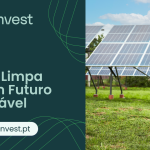Overseas investors should seek partners on the ground
Overseas investorsInternational investors considering operating in the Portuguese market should seek local partners.
This was a widely held opinion at Portugal GRI 2019 which saw investors, funds, bankers, developers and asset managers from France, the UK, US and Spain gather for the first time in Lisbon to discuss market trends and opportunities in Portugal’s real estate market.
The event — a kind of ‘Bilderberg’ meeting of the great and good in real estate investment – was held on Tuesday and Wednesday at Lisbon’s Intercontinental Hotel.
Top brass from TPG Real Estate, Round Hill Capital, Norfin, Square Asset Management, Shaftesbury Asset Management Group, Vanguard Properties, Habitat Invest, Corestate Capital Advisors, Jones Lang LaSalle, the Association of Portuguese Real Estate Investors (APPII) among many others.
Questions on the table included how the Lisbon real estate market compared to other secondary cities and should smaller investors considering entering the Portuguese market act alone or get a local partner on the ground.
Thiago Alves, Director of Portugal GRI 2019 told Diário Imobiliário that the launch of the GRI event in Portugal arose because “international members of the club realised the investment potential in the Portuguese real estate market and a recognition that the Portuguese market has consolidated but it still attractive.”
NHR and other tax incentives, the Golden Visa programme and urban regeneration are all factors which have been attracting international investors to Portugal and this will “help Portugal to maintain its status as one of the leading investment destinations in Europe.”
The Portugal GRI director thinks that Lisbon is quickly becoming a stable place for companies and startups to invest and flourish. “It should also not be forgotten that Portugal enjoys around 300 days of sun a year which is a great lifestyle advantage for people who are considering to relocate or buy a second home in the country,” added Alves.
The discreet, closed-door approach of GRI Portugal means that the discussions into the various current topics influencing the Portuguese funds, investment, vulture and venture capital markets regarding real estate could be held in an informal “armchair” atmosphere away from glare of the media spotlight.
But Essential Business as media partners was a privileged “fly on-the-wall” to some of the discussions held behind closed doors.
Pedro Lancastre CEO of Jones Lang LaSalle Portugal who chaired the discussion “Entry Strategy for Global Investors – Flying solo or opting for local partnerships” said: “This has proved a great opportunity to get together with the investors, we can see the investment is here and I think we’re going to see more and more.
“Portugal is under the international investor spotlight from many different countries. To give some idea at JLL we sold to 50 different nationalities in the commercial and residential sectors and all the commercial investors want a stake in Portugal” he says, adding that the country is doing well and “all the fundamentals are here”.
Lancastre recalls that Portugal went through “very tough times” and has since been “discovered” by property investors, with cities being “done up and restored” although with “a lot to be done still.”
“I believe that a lot more money will come in, with a lot of potential in student accommodation, the residential sector, particularly in Lisbon City centre were not all Portuguese can afford to buy houses, but now there is more interest and opportunities to develop homes for the Portuguese population,” he continued.
As to the office sector, Pedro Lancastre talked of a “huge opportunity” because of high demand and a lack of supply of those types of high-tech offices that the market requires today.
“We have a stock of four million square metres and two million inhabitants in Lisbon which means around 2 square metres per inhabitant, whereas in Madrid it is three square metres and in Paris it is four, so there is still a lot of potential,” he explained.
Pedro Lancastre admits that in some ways the market is “not growing as fast” as it had in 2017 and 2018, but continues and will continue to grow in a sustainable way.










